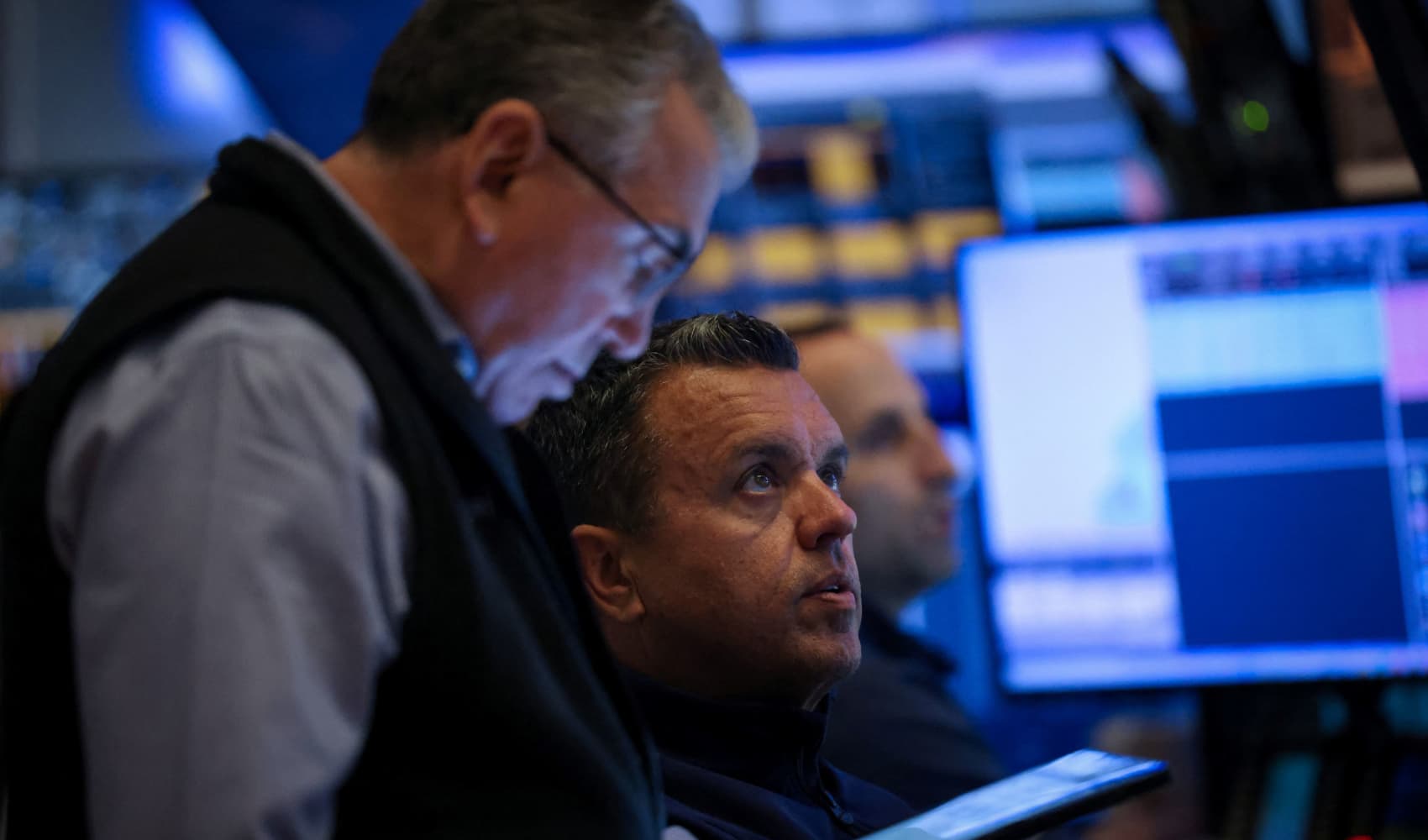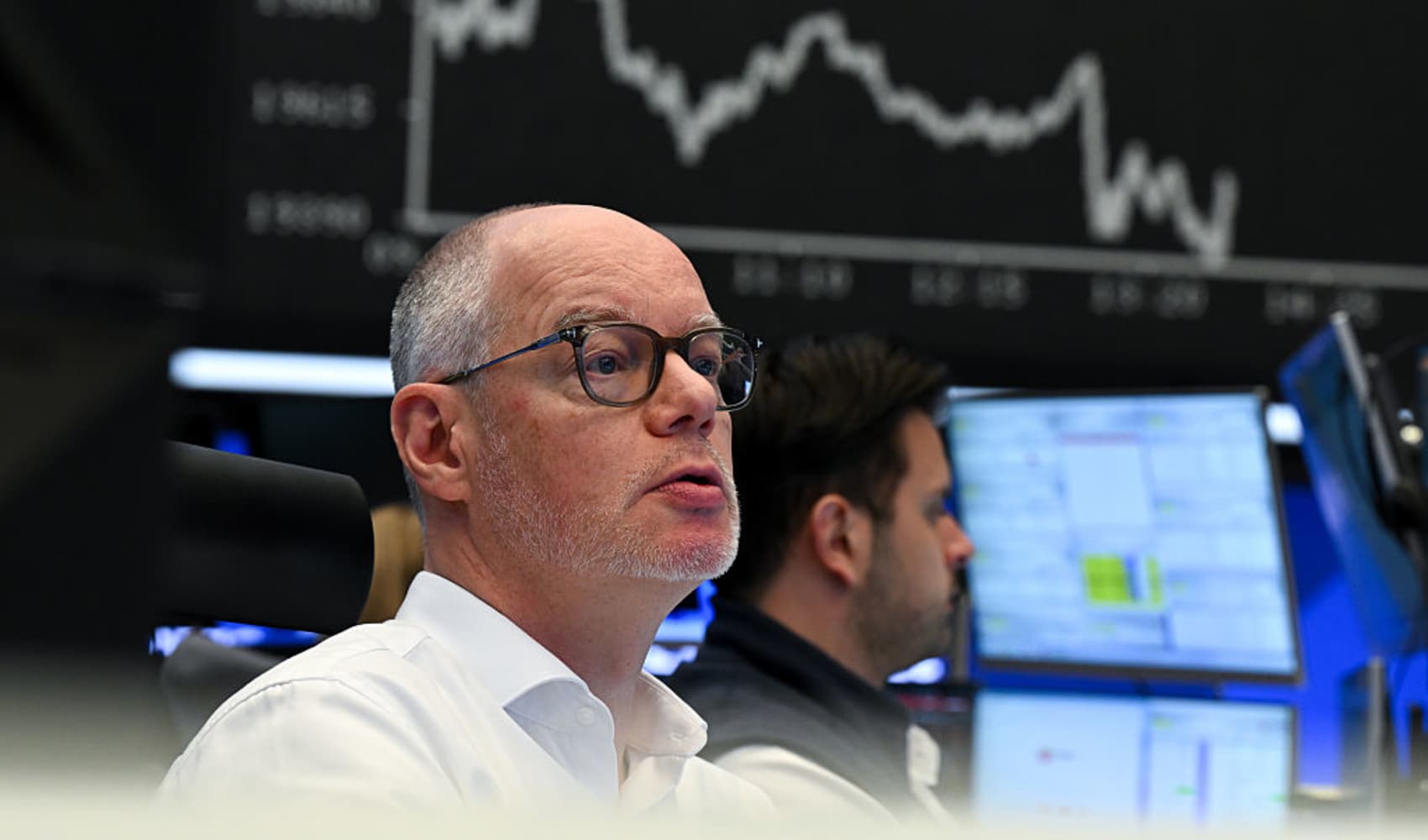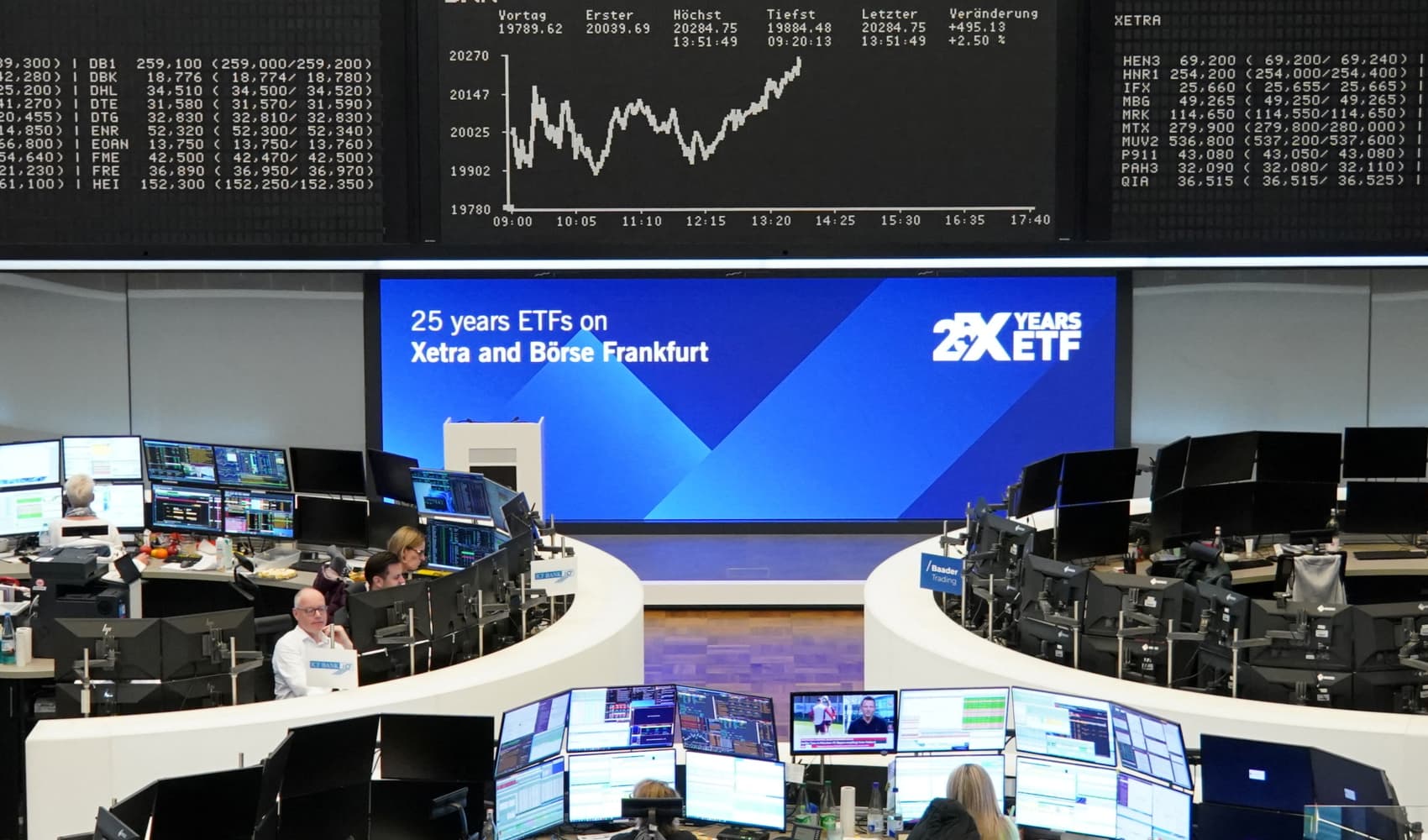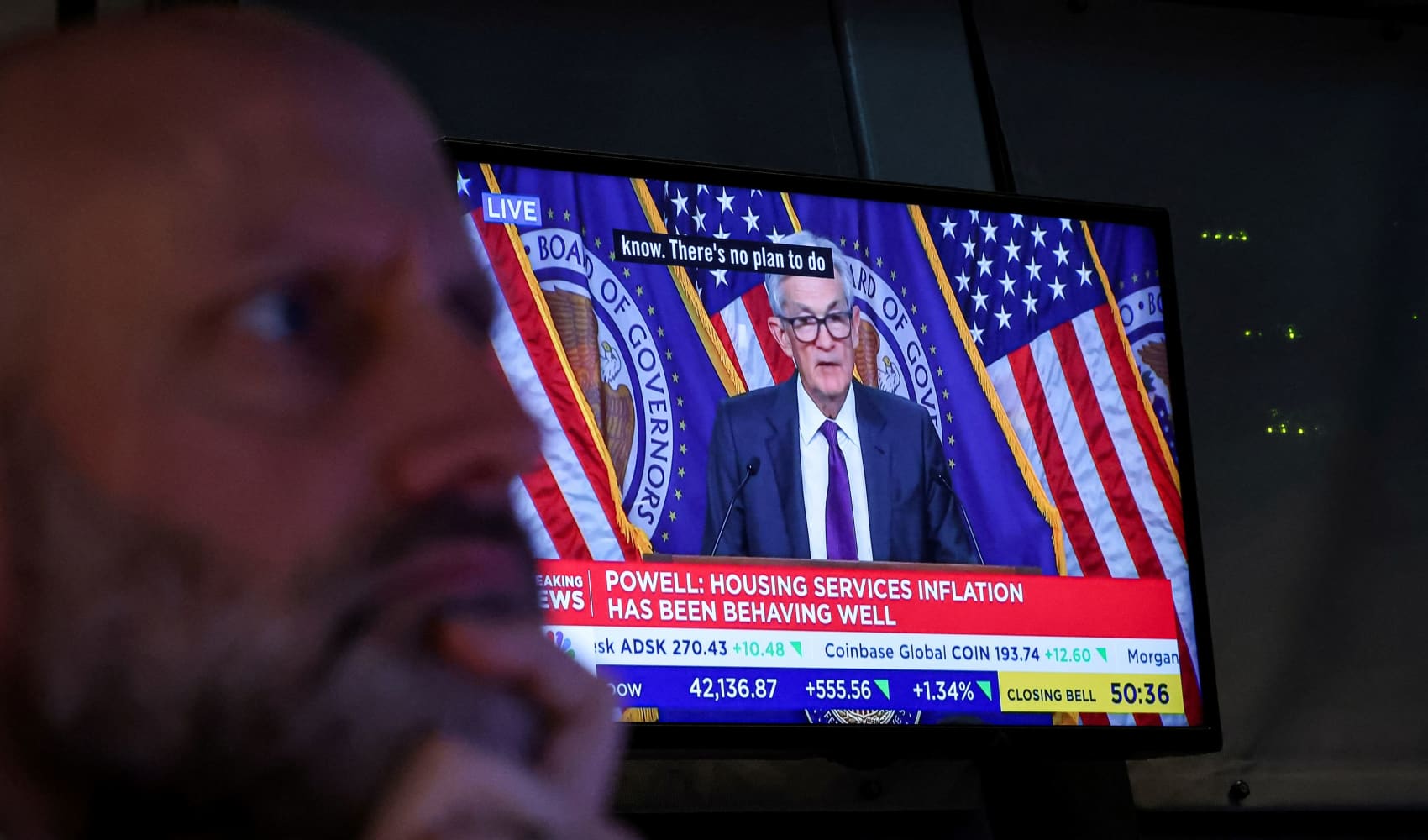European Markets Close Higher: Is This Rally Sustainable?
European Markets Ride Rollercoaster: FTSE 100 Defies Trade Winds
Introduction: A Balancing Act on the European Stage
Ever feel like the stock market is a high-wire act? Well, Thursday's European markets certainly felt that way. Amidst the constant swirling winds of trade uncertainty, stocks closed higher, proving the resilience (or perhaps the stubbornness) of investors. The pan-European Stoxx 600 index managed a 0.38% gain, a testament to the collective upward push. But what exactly fueled this cautiously optimistic climb?
The Big Picture: Stoxx 600 in the Green
The pan-European Stoxx 600 index, a broad gauge of European market performance, ended the day up 0.38%. This indicates a general positive sentiment across the continent, despite the lingering anxieties. Most sectors were showing positive signs, signaling a widespread, rather than isolated, uptick.
Germany's DAX: Leading the Charge
Germany's DAX index, a key indicator of the health of Europe's largest economy, rose by 0.5%. Was this driven by renewed confidence in German manufacturing? Was it a response to specific government policies? Whatever the reason, the DAX's performance provided a significant boost to the overall European market sentiment.
FTSE 100: A Winning Streak Against the Odds
Nine Days of Glory
The UK's FTSE 100 index, often seen as a bellwether for the British economy, managed to eke out a gain of 0.1%. This seemingly small increase marks a significant achievement: a nine-day winning streak, its longest since 2019! This raises the question: what's driving this surprising rally in the face of ongoing Brexit uncertainties and global trade tensions?
A Choppy Sea
Trading was described as "choppy," indicating a volatile and uncertain environment. The FTSE 100's ability to maintain its positive trajectory despite these turbulent conditions speaks volumes about the underlying strength (or perhaps the sheer willpower) of the market.
Global Influences: Following the Lead
Wednesday's Ripple Effect
European markets seemingly followed their global counterparts higher on Wednesday, suggesting a correlation between international market movements. The underlying catalyst? Easing concerns about a potential trade war between the U.S. and China.
Transatlantic Trade Winds
Think of the global economy as a vast ocean. What happens on one side inevitably affects the other. This interconnectedness highlights the importance of monitoring events beyond European borders to understand the forces shaping the continent's markets.
The US Factor: Trump and Powell
Powell's Position Secured?
U.S. stocks surged on Wednesday after President Donald Trump clarified that he had no plans to remove Federal Reserve Chairman Jerome Powell from his position. This seemingly simple statement had a profound impact on market sentiment.
Central Bank Independence: A Cornerstone of Confidence
Market sentiment had dipped in recent days due to concerns about the central bank's independence. Trump's statement reassured investors, reaffirming the importance of a non-political approach to monetary policy. This underscores how crucial perceived stability and predictability are for investor confidence.
Sector Performance: A Mixed Bag
Winners and Losers
While the overall trend was positive, some sectors likely outperformed others. Diving deeper into sector-specific data is crucial for understanding the nuances of market movements. Which industries benefited most from the easing trade war fears? Which sectors lagged behind, and why?
The Devil in the Details
Remember, averages can be deceiving. A positive overall market performance doesn't mean every company or sector is thriving. Understanding the individual components of the index is essential for making informed investment decisions.
Trade Uncertainty: The Elephant in the Room
Lingering Doubts
Despite the positive close, the phrase "persistent trade uncertainty" looms large. This highlights the ongoing fragility of market sentiment, dependent on the ebb and flow of trade negotiations and geopolitical developments.
A Waiting Game
Investors are essentially playing a waiting game, cautiously optimistic but prepared for potential setbacks. The market's reaction to future trade-related news will be a key indicator of its true resilience.
Brexit: Still a Factor?
While not explicitly mentioned in the provided text, Brexit remains a significant factor influencing European, and particularly British, markets. How much did Brexit uncertainties contribute to the "choppy" trading session? This is a question worth exploring, as Brexit-related news can significantly impact investor sentiment and market volatility.
Looking Ahead: What's Next for European Markets?
Eyes on the Horizon
What are the key indicators to watch in the coming days and weeks? Will the FTSE 100 extend its winning streak? Will trade tensions continue to ease? Monitoring these factors will be crucial for gauging the future direction of European markets.
The Crystal Ball
Predicting market movements is, of course, impossible with certainty. However, by carefully analyzing economic data, political developments, and investor sentiment, we can gain a better understanding of the potential risks and opportunities that lie ahead.
Investor Sentiment: A Fickle Friend
The Power of Perception
Market movements are often driven by sentiment as much as by concrete economic data. How investors *feel* about the market can have a significant impact on its performance. This is why news headlines, social media buzz, and even rumors can move markets in unpredictable ways.
Keeping Emotions in Check
Successful investing requires a cool head and a rational approach. Avoid making impulsive decisions based on fear or greed. Focus on long-term goals and stick to a well-defined investment strategy.
Risk Management: Protecting Your Portfolio
Diversification is Key
In an uncertain market environment, diversification is more important than ever. Spreading your investments across different asset classes and geographic regions can help mitigate risk.
Don't Put All Your Eggs in One Basket
This old adage holds true for investing. By diversifying your portfolio, you can reduce your exposure to any single investment and increase your chances of achieving your financial goals.
Conclusion: Navigating the Uncertainty
European markets closed higher, fueled by easing trade war concerns and positive signals from the US. The FTSE 100 extended its winning streak, defying persistent trade uncertainty. However, the market remains fragile and susceptible to geopolitical developments and shifts in investor sentiment. The key takeaway? Stay informed, diversify your portfolio, and manage risk effectively to navigate the ongoing uncertainty in the European market landscape.
Frequently Asked Questions (FAQs)
- Q: What is the Stoxx 600 index?
- A: The Stoxx 600 is a broad stock market index representing 600 of the largest companies across 17 European countries. It's a good overall indicator of how European markets are performing.
- Q: Why is trade uncertainty affecting the markets?
- A: Trade uncertainty creates doubt about future economic growth and corporate earnings, making investors hesitant. Tariffs and trade restrictions can disrupt supply chains and increase costs for businesses.
- Q: How does the US Federal Reserve influence European markets?
- A: The Fed's monetary policy decisions, such as interest rate changes, can impact global financial conditions and investor sentiment, affecting European markets through currency exchange rates and international capital flows.
- Q: What is driving the FTSE 100's recent winning streak?
- A: While it's difficult to pinpoint one single factor, potential drivers could include a weaker pound (benefiting exporters), positive earnings reports from major companies listed on the FTSE, and a temporary easing of Brexit-related concerns.
- Q: What should I do as an investor during times of market uncertainty?
- A: It's generally recommended to remain calm, avoid impulsive decisions, and focus on your long-term investment goals. Diversify your portfolio, review your risk tolerance, and consult with a financial advisor if needed.







